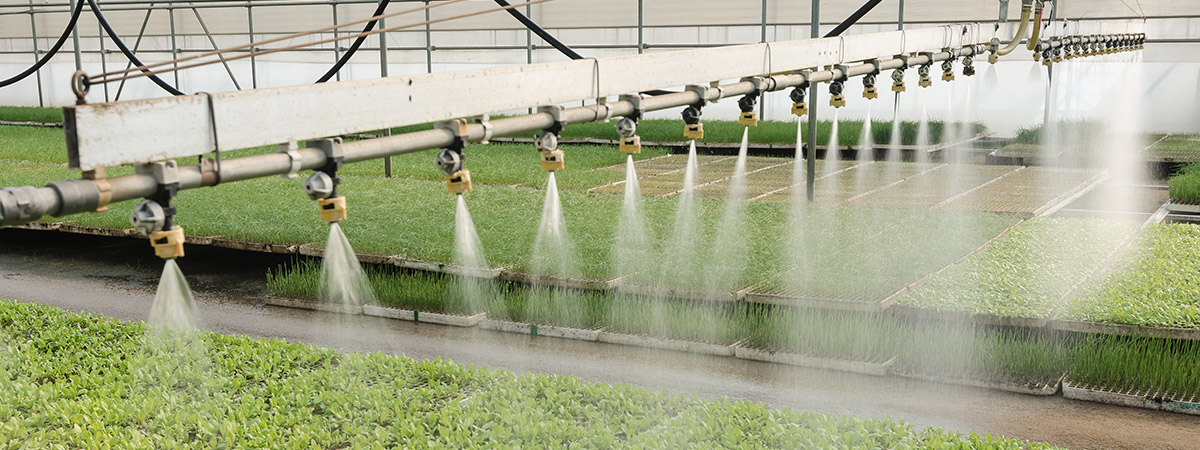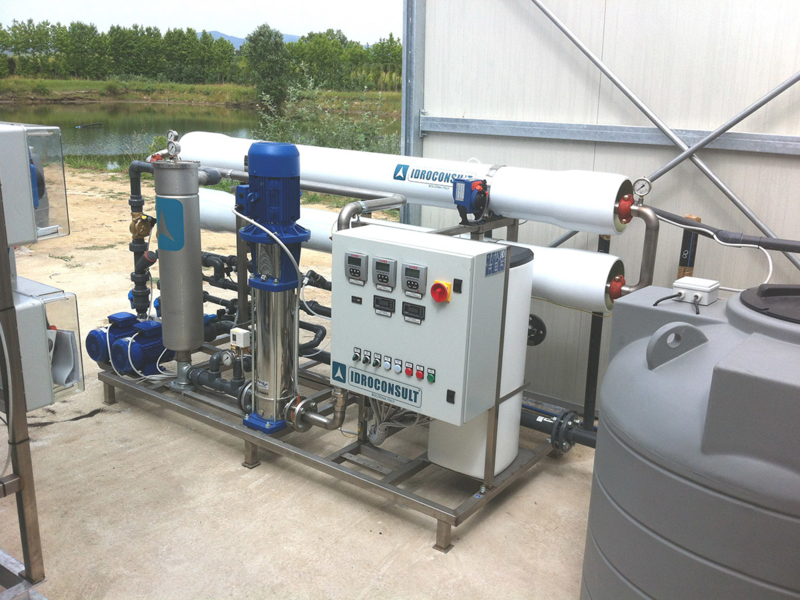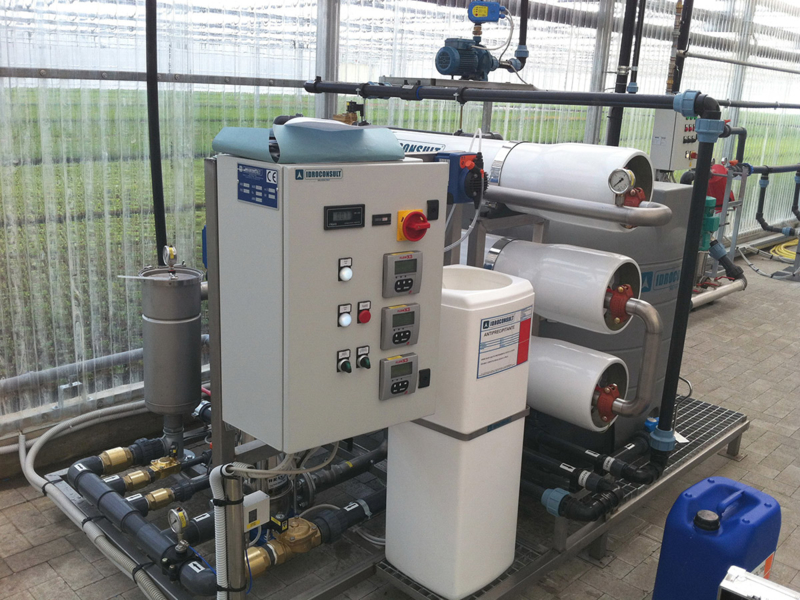
TREATMENT FOR IRRIGATION USE
Water with controlled salinity
One important use of suitably treated water is for irrigation.
This is mainly for agricultural use.
Use for livestock farming is different and must be more refined.
Even though irrigation has been used in the world for thousands of years, only since the last century has the importance of the quality of irrigation water begun to be recognised.
The chemical-physical characteristics of irrigation water are of particular importance in dry areas, where extreme temperatures and low humidity lead to high levels of plant evapotranspiration.
The fall in the levels of groundwater has led to a considerable increase in average salinity, with ancillary problems for the industry providing water destined for human consumption as well as for water used in horticulture and quality cultivation.
This phenomenon consequently leads to deposits of salts from irrigation water on the surface layer of the ground.
 A sector that is extremely susceptible to this problem is intensive greenhouse horticulture.
A sector that is extremely susceptible to this problem is intensive greenhouse horticulture.
Irrigation water can vary in quality considerably depending on the salts dissolved in it.
The mechanical and physical properties of the ground, combined with the level of dispersion of soil particles, its aggregation and permeability, are very sensitive to the ions present in the water.
Some ions for example are toxic if present in concentrations higher than a certain level, which can increase if these are concentrated in specific areas of the ground because of its poor permeability.
Salinity of water
The presence of salts affects the growth of plants in three ways:
- Osmotic effects, caused by salts dissolved in the ground;
- Specific toxicity, caused by the concentration of individual ions;
- The dispersion of ground particles, due to high concentration of sodium and low salinity.
With high salinity in the root area, plants use a large part of their energy resources to rebalance the salt content at the root interface of the water to be taken in.
When this happens, less energy is available for their growth.
Adequate treatment must therefore be studied in order to avoid possible damage to crops, and must obviously be based on the quality of the water coming into the treatment cycle, which more specifically means the water that comes out of urban treatment plants.
The specific toxicity of the ions
If the reduction in the growth of the plants is due to an excessive concentration of certain specific ions, rather that osmotic effects themselves (salinity), the issue is the specific toxicity of the ions.
The ions involved are primarily Sodium, Chlorides and Boron.
The first two are common in urban wastewater, due to water softeners, detergents, etc.
The problem of their concentration is mainly accentuated in dry and arid environments, because of the high levels of evapotranspiration that are reached.
In extreme cases some elements tend to accumulate in the plants and in the ground, and this can bring risks for human and animal consumption, or can cause phototoxicity in the actual plants.
Level of water infiltration
In addition to toxicity from sodium as described above, another indirect effect of the high content of sodium is a deterioration in the physical characteristics of the ground (the formation of surface incrustation, ruts caused by water, reduced permeability).
If the infiltration drops below a certain level, it may become impossible to nurture the growth of plants with sufficient water.
It may come to the point of having to redesign the irrigation network in a given area.
Chlorination level
If the content of free chlorine present in water treated for irrigation is higher than a certain minimum concentration, this can create considerable damage to the foliage of plants, especially if the water is sprayed directly onto it.
The purpose of all the above considerations is solely to create awareness of the importance of the quality of water used for irrigation and of the significant damage that can occur by underestimating the importance of the treatment.
In these contexts the adoption of reverse osmosis systems proves to be important for providing water with controlled salinity.
Systems with automatic dilution are available based on set points that are fixed according to the type of activity.
The best solution to your problem
Contact us for a personalized offer
 IT
IT



